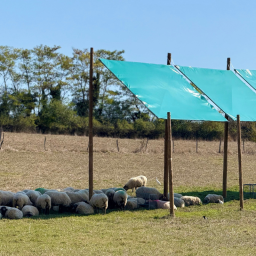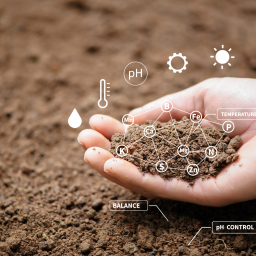NEW
Artificial intelligence to know the health of Europe’s soils
3 April 2023- NEIKER participates in the Al4SoilHealth project to develop a system based on artificial intelligence that monitors and predicts the state of the soil in order to know and preserve its health.
- Soil is the only public resource in the European Union that lacks specific legislation to ensure its protection and proper use.
- The first meeting of the consortium, made up of 28 entities from across Europe, took place last week in Denmark
Sixty to seventy percent of European soils are not in adequate health. This is mainly due to the loss of organic matter content and biodiversity, and also to the fact that there is currently no legislation in place to care for this resource. The European Commission has set several concrete targets to prevent further soil degradation and combat climate change. The targets include, for example, a 50% reduction in the use of pesticides and a 20% reduction in the use of fertilizers by 2030 and zero emissions by 2050, which cannot be achieved without adequate soil health. Therefore, it is necessary to activate methods that allow the measurement and evaluation of the progress being made towards healthier soils.
In this regard, NEIKER technology center, member of the Basque Research and Technology Alliance (BRTA), is participating alongside European researchers in the Al4SoilHealth project to create a digital infrastructure that monitors and predicts soil health indicators on the continent.
The goal is for the tool to be used to continuously assess and monitor soil health in relation to soil management. If it detects that any soil indicator or parameter is outside the appropriate range, it will provide decision support based on previously collected data processed with artificial intelligence for European soils.
The initiative, which started last January and will run until December 2026, will try to implement a free digital tool to help the primary sector or any other soil user. To this end, the project partners will generate a digital twin, a virtual tool used in the industry to reduce costs, and which allows the creation of digital replicas, in this case, of soils.
The type of artificial intelligence with which the researchers will work includes software solutions and big data to analyze various aspects of soils, use remote sensing systems or create maps, for example.
Testing soils in 11 countries
NEIKER technology center will contribute to the project with its knowledge and extensive experience in soils to generate the different measurement indices that will help to assess the state of the soil and the different ecosystems it covers. Specifically, it will provide its expertise on the 8 indicators proposed by the European Commission, such as the presence of contaminants, organic carbon, soil biodiversity, nutrients and pH.
Once the analysis tools have been generated, tests will be carried out in 11 European regions, including the Basque Country, in order to improve the design and reliability of the system.
“With this project we hope to generate a methodology that is capable of calculating a specific health index for each climate and soil condition, adapted to the land use, as well as an affordable kit of measurements that assesses its evolution,” explains Lur Epelde, researcher at NEIKER’s Natural Resources Conservation department.
In addition, the initiative seeks to collect data for historical and predictive mapping of various soil variables. In turn, it will also develop a query application to obtain information on the values at plot level, of great interest and utility for those European users linked to the soil.
To implement these objectives, the consortium of project partners, which is part of the European Horizons Europe program, met last week in Aarhus (Denmark) to investigate and develop actions to support the implementation of European legislation to protect the continent’s soils.
The aim of the initiative is to support the EU Soil Health and Food Mission to achieve the objectives set out in the EU Soil Protection Strategy 2030. Since 2022, Euskadi also has its own Strategy for Soil Protection.
It should be noted that the European Commission has announced the presentation of a legislative proposal for soil health on June 7.
About Al4SoilHealth
Al4SoilHealth is a European project that seeks to create a digital infrastructure that monitors and predicts soil health indicators on the continent.
In addition to NEIKER, the consortium is composed of 27 other European entities: Aarhus University (Denmark), OpenGeoHub Foundation (Netherlands), UK Center for Ecology and Hydrology (UK), Soil Association (UK), Planet Labs (Netherlands), IIASA (Austria), Institute of Geo-Hydroinformatics at TUHH (Germany), University of Zagreb (Croatia), Stockholm University (Sweden), Aalborg University (Denmark), Thünen Institute of Climate-Smart Agriculture (Germany), Universitá degli studi Roma Tre (Italy), University of Aberdeen (United Kingdom), Max Planck Institute of Biogeochemistry (Germany), Basel University (Switzerland), ETH Zurich (Switzerland), Bern University for Applied Sciences, Aristotle University of Thessaloniki (Greece), Natural Resources Institute Finland (Luke) (Finland), INRAE (France), Sorbonne University (France), ISINNOVA (Italy), Institute for Soil Sciences at ATK (Hungary), MultiOne (Sweden), Digit Soil (Switzerland) and Sustinn (Italy).
This is the Horizons Europe project, which will run from January 2023 to December 2026, has a total budget of 13,789,328 euros.






